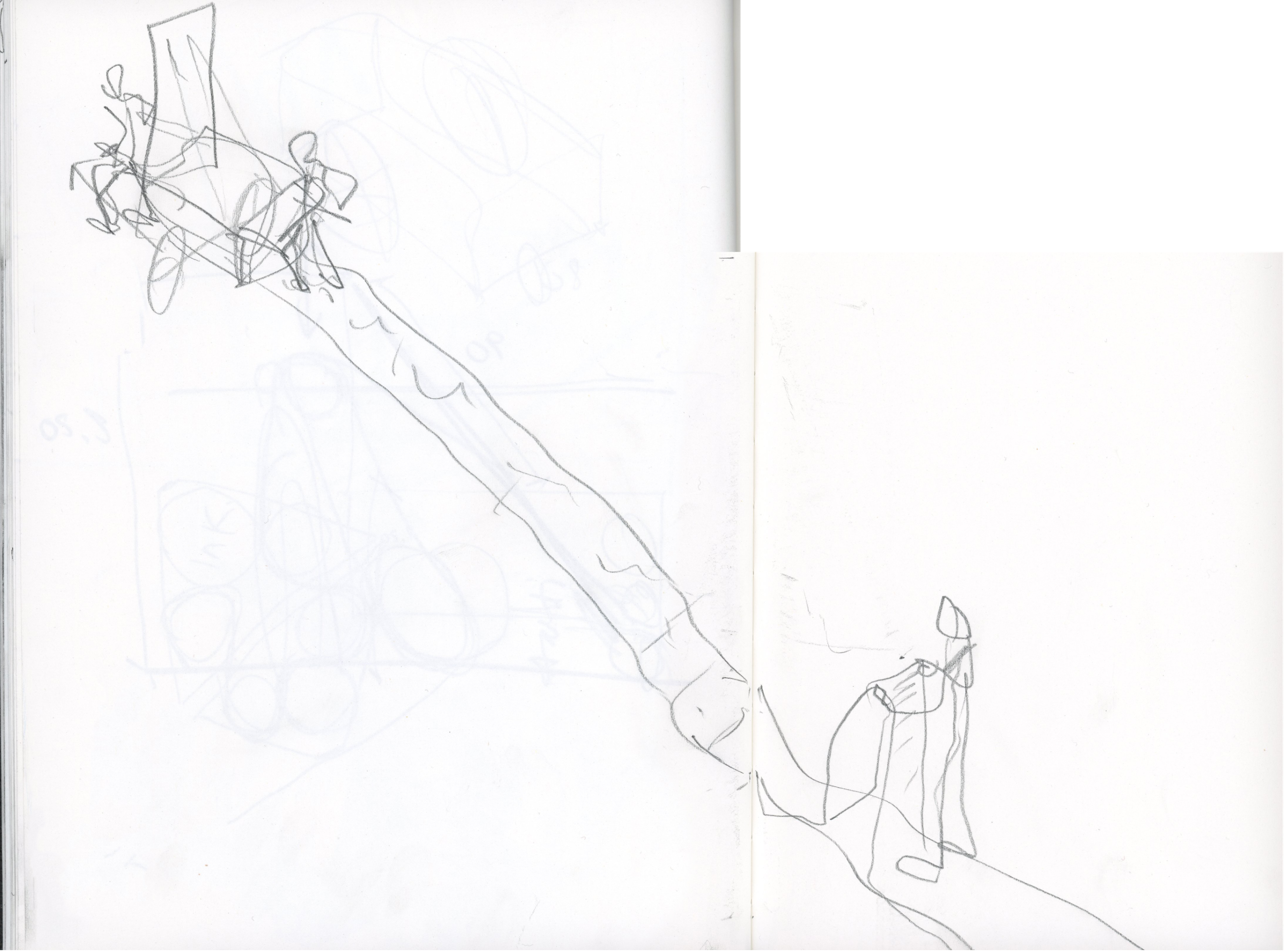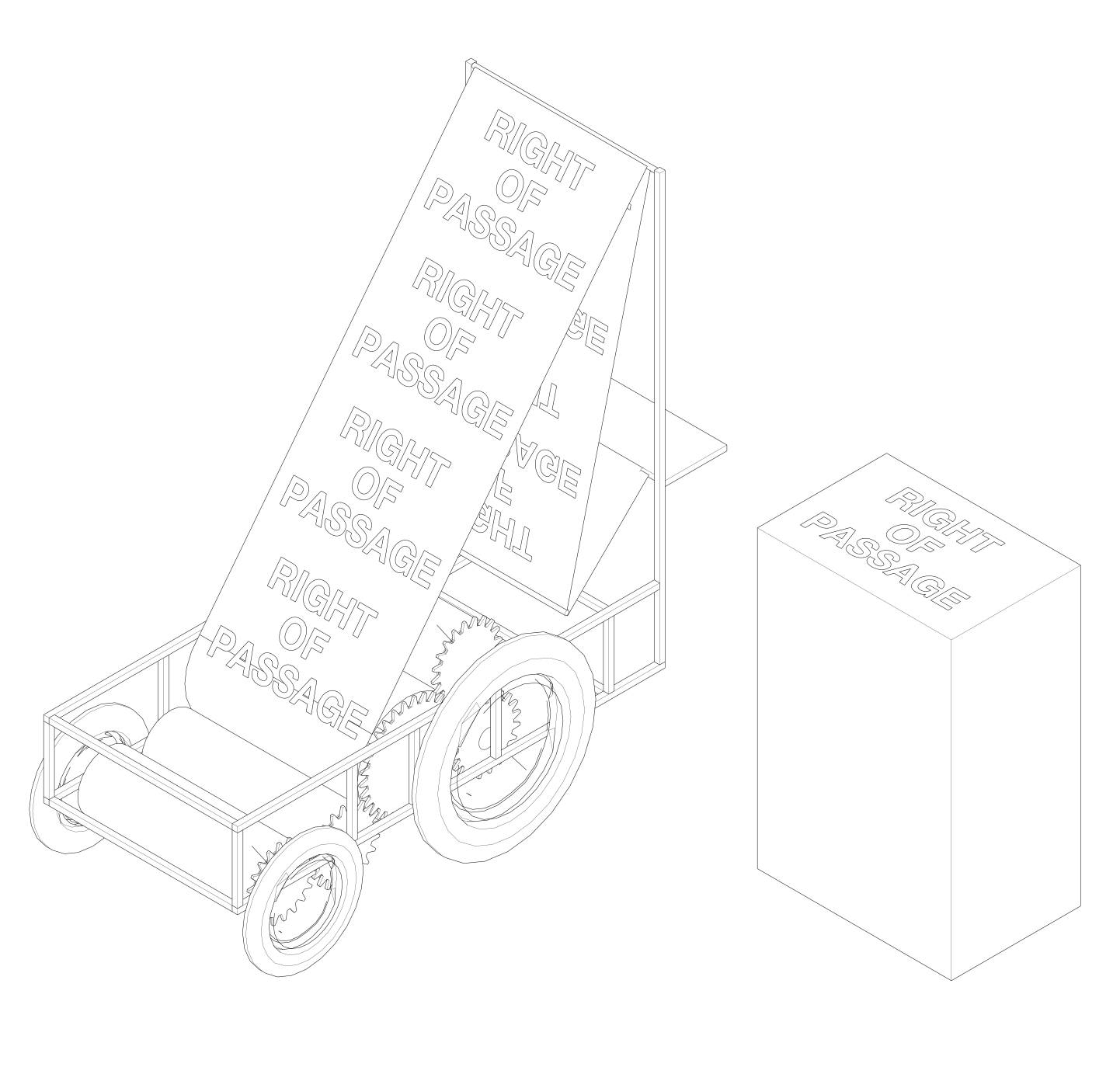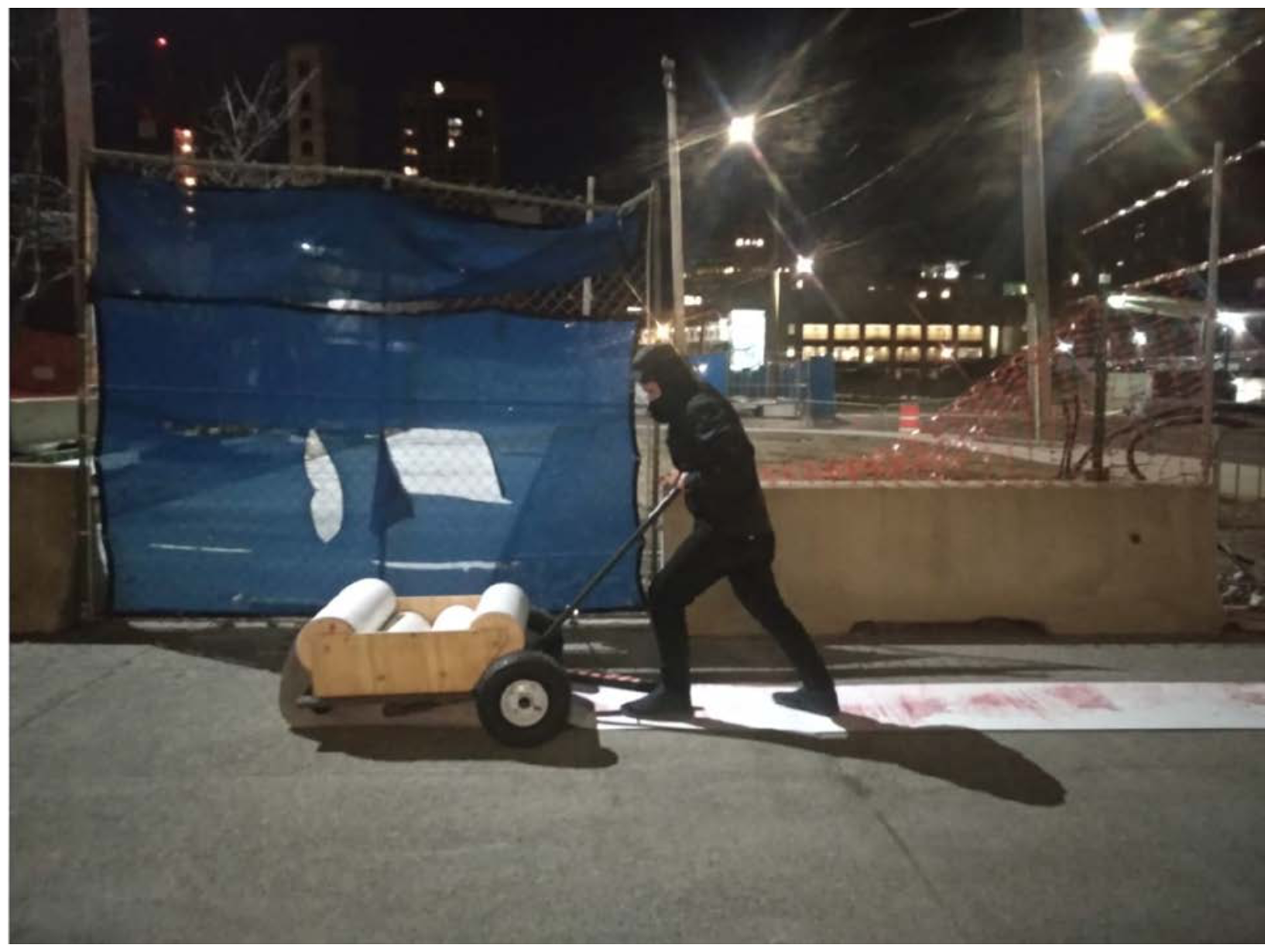Interfaz 001 (I001) is a walking duplicator that works as a communication device in the public realm. Because of its scale, Interfaz 001 must reclaim public space in order to be activated; by doing so, the walking vehicle acts as an interface between bodies and the city. Negotiating choreographed and regulated spaces with the movement of gear mechanisms and printing rolls, I001 leaves a trace of the action of going through and the attempt of replicating a message that is printed as the rolls are activated by pushing the vehicle.
The interface appropriates gear mechanisms present in offset printers and mimeographs together with dollies and communication vehicles found in the city of Boston; mixing both elements, the interface camouflages in public space resembling a utilitarian object.
As it gets deployed, Interfaz 001 leaves a fading message as a trace that repeats as the vehicle is pushed and is affected by the rugosity of the city’s surface—acting both as a conveyor and duplicator of messages but also as a vibratory device that tracks and registers the tremors of the walk. Interfaz 001 is both a fading duplicator and a dysfunctional seismographer.
I001 brought exciting results regarding not just design and the function of the interfaces but with matters of scale and measurements. Through Interfaz 001, it was discovered that not only did these walking interfaces acted as the uncanny instrumentarium for the misusage of spaces and technologies, but they also had the potential to generate information through their deployment. This information, or data, came from the vibrations caused by the texture of the pavement, generating traces that became direct translations not just of the walk but an imprint of space and time. The interfaces then could become some sort of odd sensors.
It is essential to say that Interface 001 failed in every possible functional aspect: it broke, clogged, and teared as it moved, generating a very interesting tacit understanding of the materials it was made of and the way of navigating its rudder, but also on the importance of such forms of failing. In other words, by erring, Interfaz 001 opened up not just frustrations but also possibilities for the continuation of more interfaces.









This project was possible thank´s to the support of ACT´s Pilot grant award.